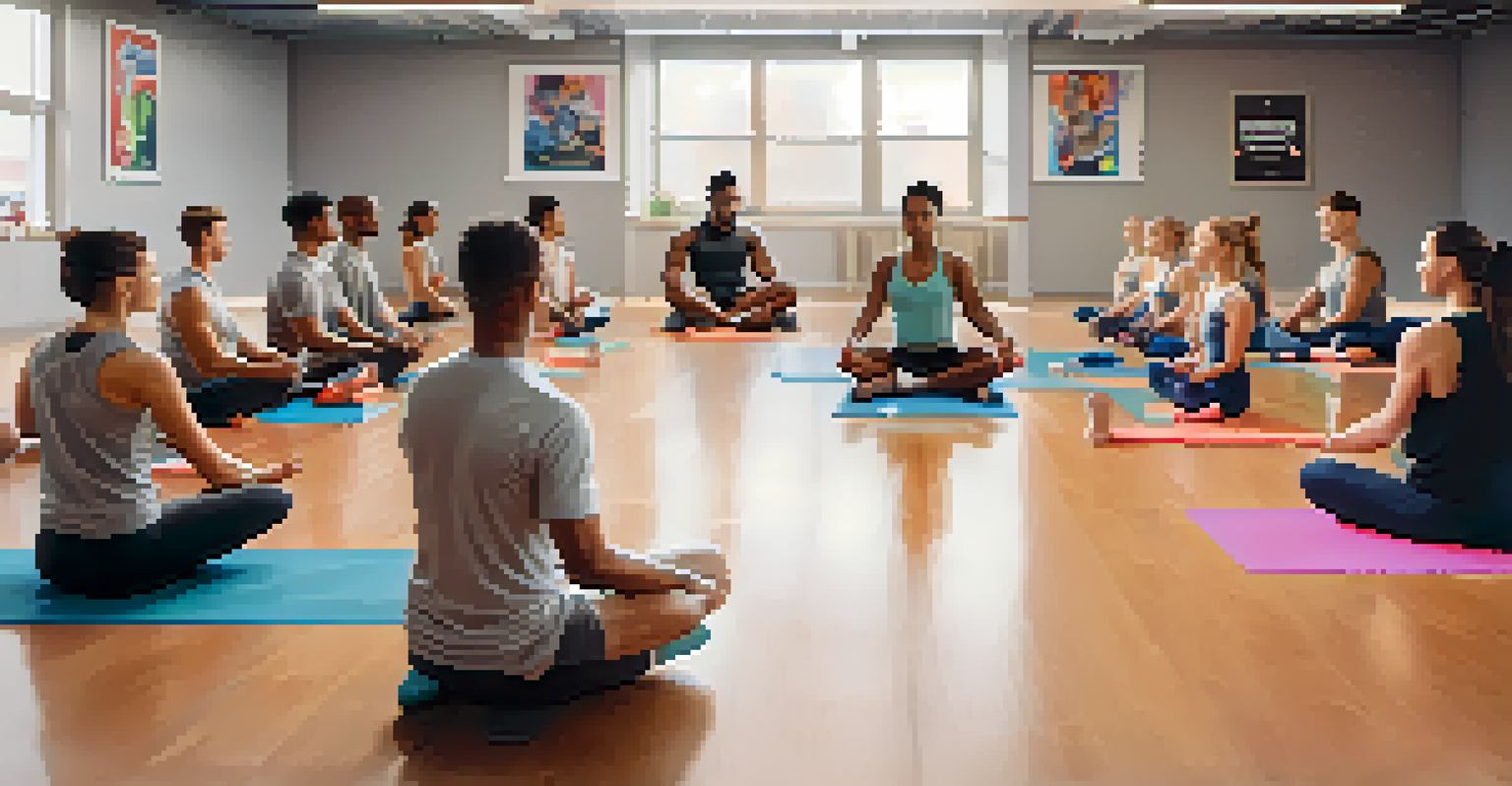Holistic Approaches to Enhancing Athletic Performance

Understanding Holistic Approaches in Sports
Holistic approaches consider the whole athlete, not just their physical skills. This means looking at mental, emotional, and even social factors that contribute to performance. By integrating various elements, athletes can achieve a more balanced and sustainable performance.
The mind is everything. What you think you become.
For example, an athlete might focus solely on physical training but neglect their mental well-being. This oversight can lead to burnout or decreased motivation. Emphasizing a holistic view allows athletes to thrive in all areas, fostering overall improvement.
Ultimately, a holistic approach can help athletes develop resilience, adaptability, and a deeper understanding of their own bodies. This kind of awareness is crucial for long-term success and health in sports.
Nutrition: Fueling the Body and Mind
Nutrition plays a vital role in enhancing athletic performance. A well-balanced diet provides the energy athletes need to train effectively and recover properly. Incorporating a variety of nutrients ensures that an athlete's body has everything it needs to function optimally.

Consider the importance of hydration as well; even slight dehydration can impair performance. Athletes should aim for a diet rich in whole foods, including fruits, vegetables, lean proteins, and healthy fats. This not only fuels the body but also supports cognitive function and mood.
Holistic Athlete Development
A holistic approach considers mental, emotional, and social factors alongside physical skills to enhance overall athletic performance.
Moreover, personalization is key. Each athlete's nutritional needs can vary based on their sport, body type, and personal preferences. Working with a nutritionist can help tailor a diet that empowers athletes to reach their peak performance.
The Power of Mental Training Techniques
Mental training is an essential component of a holistic approach to athletics. Techniques like visualization and mindfulness can significantly enhance focus and reduce anxiety. By training the mind, athletes can improve their performance under pressure.
You are what you eat, so don’t be fast, cheap, easy, or fake.
For instance, a swimmer might visualize their race, imagining each stroke and turn vividly. This mental practice not only prepares them for the actual event but also builds confidence. Regular engagement in mental training can lead to improved concentration and overall performance.
Additionally, incorporating breathing exercises can help manage stress and promote relaxation. Athletes who prioritize mental training often find themselves more resilient during challenges, allowing them to perform at their best consistently.
Physical Recovery: Importance and Techniques
Recovery is just as crucial as training itself in enhancing athletic performance. Incorporating rest and recovery techniques can help prevent injuries and improve overall efficiency. Athletes should prioritize sleep, nutrition, and active recovery days to allow their bodies time to heal and adapt.
Techniques such as foam rolling, stretching, and massage therapy can alleviate muscle tension and promote blood flow. These practices help athletes recover faster, enabling them to train harder and perform better. Listening to the body and recognizing signs of fatigue is essential in this process.
Nutrition Fuels Performance
A well-balanced diet, tailored to individual needs, is crucial for optimizing energy levels and recovery in athletes.
Moreover, mental recovery is equally important. Engaging in activities outside of sport, like hobbies or socializing, can help athletes recharge mentally. A well-rounded recovery strategy ensures athletes are ready to tackle their next challenge.
Building a Supportive Environment
A supportive environment plays a significant role in an athlete's performance. This includes not only coaches and teammates but also family and friends. A positive support system helps athletes stay motivated and accountable.
For example, having a coach who understands and promotes a holistic approach can make a world of difference. They can provide guidance on not just physical training, but also mental and emotional well-being. This comprehensive support fosters a culture of growth and resilience.
Additionally, athletes should seek out communities that align with their values and goals. Surrounding themselves with like-minded individuals can create a sense of belonging and encouragement, ultimately enhancing their performance.
Integrating Mindfulness and Meditation
Mindfulness and meditation are powerful tools for athletes looking to enhance their performance. These practices encourage present-moment awareness, which can help reduce distractions and anxiety. By integrating mindfulness into their routine, athletes can improve focus and clarity during competitions.
For instance, a runner might practice mindfulness by concentrating on their breath or the rhythm of their steps. This helps them stay grounded and reduces the likelihood of negative thoughts creeping in. Regular meditation can also enhance emotional regulation, leading to improved performance under pressure.
Mental Training Techniques Matter
Incorporating mental training techniques like visualization and mindfulness significantly improves focus and performance under pressure.
Moreover, incorporating short mindfulness sessions before training or competitions can set a positive tone. Athletes who practice these techniques often report feeling more centered, confident, and ready to give their best effort.
The Role of Goal Setting in Performance Enhancement
Goal setting is a fundamental aspect of a holistic approach to athletic performance. Establishing clear, achievable goals allows athletes to focus their training and measure their progress. It creates a sense of direction and purpose, which can be incredibly motivating.
For example, an athlete might set a goal to improve their personal best in a specific event. Breaking this down into smaller, manageable objectives can make the process feel less overwhelming and more attainable. Regularly reviewing and adjusting these goals ensures they remain relevant and inspiring.

Additionally, involving a coach or mentor in the goal-setting process can provide valuable insights and support. This collaborative approach fosters accountability and encourages athletes to push beyond their comfort zones.